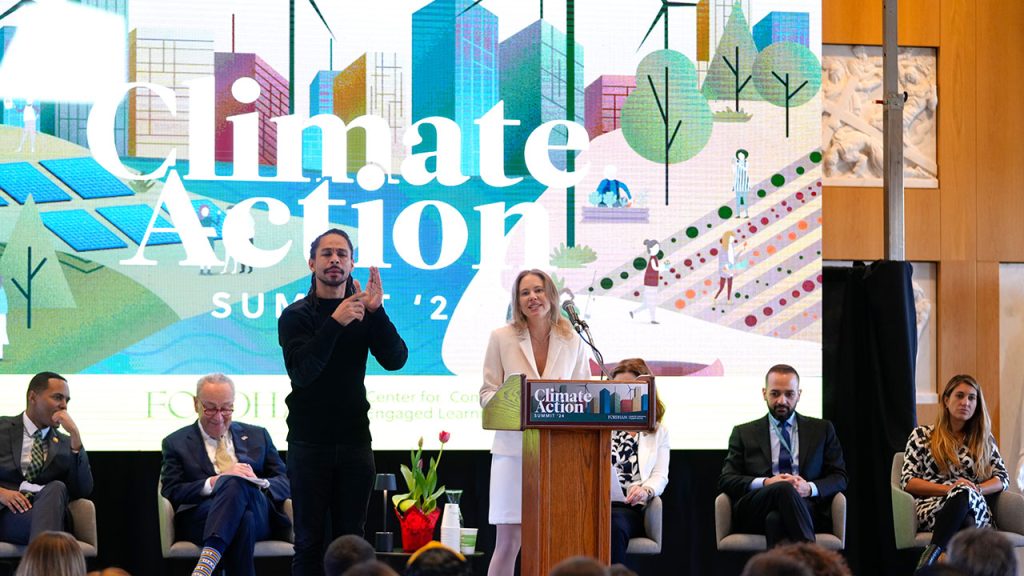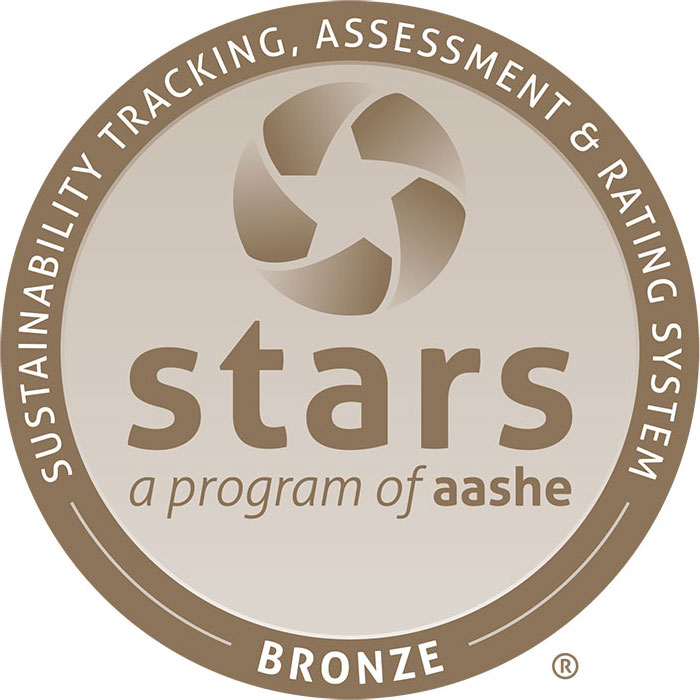A national sustainability organization has recognized Fordham for its efforts toward becoming a greener campus.
On April 2, the Association for the Advancement of Sustainability in Higher Education (AASHE) awarded the University a bronze rating in its Sustainability Tracking, Assessment & Rating System, known as AASHE STARS. The system was created in 2006 as a way to measure and encourage sustainability in all aspects of higher education.
The ratings are based on five areas: academics, engagement, operations, planning and administration, and innovation and leadership. There are 389 colleges and universities in the United States with AASHE STARS ratings, ranging from bronze to platinum.
Jasmine Petrov, a 2022 graduate of Fordham College at Lincoln Center who supervised the data collection for Fordham’s Office of Sustainability, said the rating was particularly valuable not only because it provides concrete evidence of the types of progress the University has made since it committed in 2007 to becoming a greener campus, but also because it highlights areas that may need improvement. That helps the University decide where to devote resources in the future.
“You need to understand what is operating well and what isn’t at this moment before you can create an actionable plan to improve on it,” she said.
Data Collected By Students
Students who interned with the Office of Sustainability were key to the project, as many collected the data that was submitted to AASHE. The data that was submitted earned 41.82 points in AASHE’s scoring system, earning Fordham the bronze rating.
The University ranked highest in the area of engagement, thanks to initiatives such as the $50 million grant from the Environmental Protection Agency, which it secured to work with vulnerable communities in New York, New Jersey, Puerto Rico, and the U.S. Virgin Islands.
A silver rating, which can be obtained with 45 points, is imminently reachable for Fordham, said Petrov. Some of the sustainability efforts just need to be better documented, she said, both in facilities and other areas.
“When I was collecting the data, I had to speak not only with people who are in charge of facilities but also people who are in charge of the library about how open and accessible research is,” said Petrov, who is pursuing a master’s degree in healthy cities at International University of Catalonia in Barcelona, Spain.
“You may not think that’s sustainability, but to be sustainable, you have to have access to information that can advise you on that. Now we have this avenue to say, ‘these are the guidelines we should use to achieve this’.”


